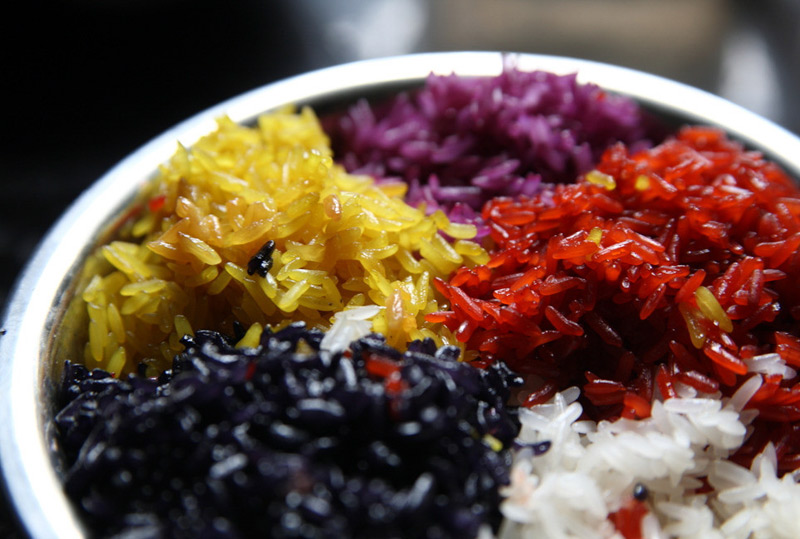| Topic: Qingming Festival | |
|---|---|
|
Edited by
DadCat
on
Fri 04/03/15 05:08 PM
|
|
|
This weekend begins the Qingming festival. It is also known as Tomb Sweeping Day. Other common translations include Chinese Memorial Day and Ancestors' Day.
On Sunday April 5 is the actual day though the celebration takes place on April 4 through April 6, 2015. The dates of this may vary for expatriates as a result of the migrations of the Chinese peoples across Asia and North America. Families make traditional colorful glutinous (sticky) rice dishes with the color materials coming from tree leaves. There are 5 colors of white, black, red, yellow and purple to give a wonderful appearance. 
There is much mystery surrounding the origins of the festival. Various origins are described though some are rooted in the culture of the local communities as opposed to the country of China. The Chinese name suggests a time for people to go outside and enjoy the greenery of springtime. On Sunday, people will go on family outings and sing, and dance. The date follows the advent of Spring. For some it is a time to go to their ancestor's tomb on the mountain. They will give some flowers and cut the grass. It's also for the memory of the dead ancestors and to pray to them. Some will burn ceremonial paper to honor their ancestors as well. The holiday also has a significance for Chinese tea enthusiasts. Tea harvested prior to the holiday is considered more valuable and prized for the subtlety of the flavors. |
|
|
|
|
|
Qing Ming for me has always being to go to the cemetery, clean the surrounding and tomb, bring offering of food and paper paraphernalia to pray to our ancestors.
Over the years, the practice of just going there to pray has taken a twist with a positive trend. It was tradition that daughters who are married prays at their in-law's side, and are not allowed to pray at their own father/mother's grave. But this has slowly changed, and they are allowed to nowadays, with certain conditions that the sons pray first, then the daughters who are not married, and then the ones who are married last. And the traditional food items has changed to the food the departed used to like.... instead of steamed chicken, some buy KFC. Some even light cigarettes, serve black coffee and other types of gourmet coffee (instead of just the traditional chinese tea). The paper paraphernalia has also undergone vast changes over the years. Traditionally, gold/silver paper folded to resemble gold/silver ingots, clothes in traditional designs, shoes/etc. were burnt. In recent years, modern paper paraphernalia like iPads, iPhone, laptops, computers, LCD TVs, cars and a lot more that boggles the mind are sold and used by the modern and younger generations. 

But all in all, it is the thought that counts and that the tradition gets carried down to the future generations. |
|
|
|
|
|
Tomb Sweeping Day in Taiwan. Traditionally calculated as the 105th day after the Winter Solstice and called the Chingming (Clear and Bright) Festival. Tomb Sweeping Day in Taiwan is now celebrated annually on April 5th, which coincides with the date of President Chiang Kai-shek's death in 1975. Thereafter, April 5th is both a traditional Chinese festival and a contemporary national holiday in Taiwan. (Extract from Insight Guides Taiwan)
|
|
|
|
|








